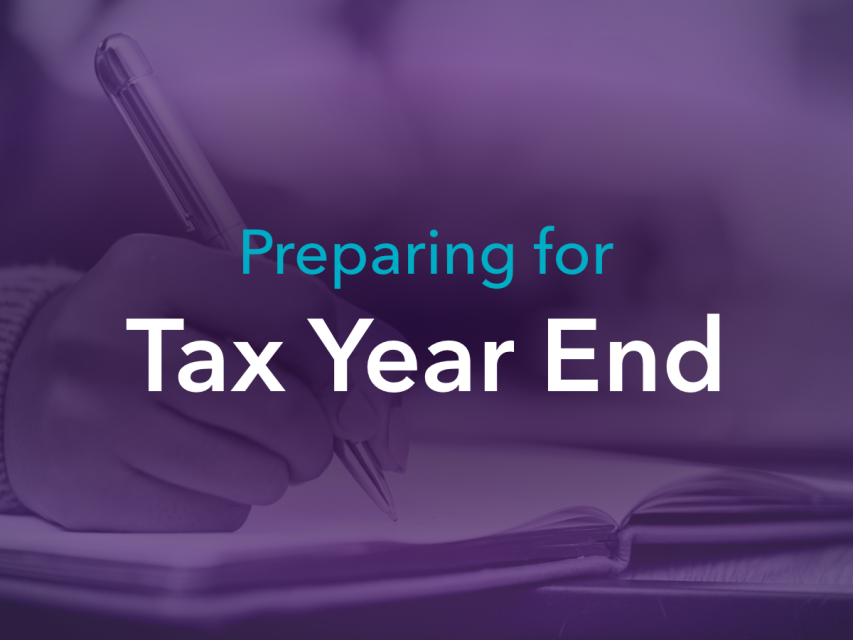Autumn Budget: What it means for you and your finances
Rachel Reeves presented her second Autumn Budget as Chancellor, outlining the latest tax and spending decisions and setting direction for the next phase of the Government’s economic strategy.
Personal tax thresholds will be frozen for a further three years – raising over £8 billion – while the Chancellor announced reforms to Cash ISAs to encourage savers to invest and help boost the economy.
Overall, the Budget’s tax-raising measures are worth around £26 billion by 2029-30, while the tax burden will hit a record high 38% of GDP.
Here are our key takeaways from the Budget and what they mean for your finances.
Personal tax thresholds frozen
The Budget confirmed the extension of the personal tax thresholds freeze for a further three years from 2028-29 to 2030-31. As a result:
- The income tax personal allowance, the higher-rate threshold and additional-rate threshold are frozen at £12,570, £50,270 and £125,140 until 2030-31.
- The NICs secondary threshold is frozen until 2030-31. This threshold was reduced from £9,100 to £5,000 as part of the changes to employer NICs announced at Autumn Budget 2024.
It also means that by the time we get to 2031, tax thresholds will have been frozen for nearly a decade after first being announced by former Conservative Chancellor Rishi Sunak back in 2021.
The OBR forecasts that personal tax changes will raise a combined £15 billion in 2029-30, which includes the freezing of tax thresholds (raising £8 billion), charging National Insurance on salary-sacrificed pension contributions (raising £4.7 billion) and increasing basic and higher rate dividends, as well as all property and savings income tax rates by 2 percentage points (raising £2.1 billion).
Chancellor announces reforms to cash ISAs
The Chancellor also announced reforms to the ISA system. The full £20,000 allowance will remain, but £8,000 of this will now be designated exclusively for investment purposes, with Reeves hoping the cut will get savers investing and help boost the economy.
The cut will come into effect from April 2027, but it will not affect over-65s, who will be allowed to retain the £20,000 cash ISA limit.
It’s important to stress that the full ISA limit – the amount you can deposit/invest across three types of tax-free ISA accounts (cash, innovative finance, and stocks and shares) – is staying at £20,000.
Effectively, you can still save £12,000 tax-free in a cash version then, for example, the remainder in a stocks and shares ISA. Currently, you also have the option of saving into a Lifetime ISA, which can take a maximum of £4,000 annually and benefits from a 25% government top-up, as per eligibility. However, the government will publish a consultation in early 2026 on the implementation of a new, simpler ISA product to replace the Lifetime ISA and to support first time buyers to buy a home.
Salary sacrifice contributions cap introduced
Salary-sacrificed pension contributions above an annual £2,000 threshold will no longer be exempt from National Insurance Contributions from April 2029. This means that salary-sacrificed pension contributions above this limit will be treated as ordinary employee pension contributions in the tax system and therefore be subject to both employer and employee NICs.
Often integrated into pension plans, salary sacrifice offers a tax-efficient route for you to enhance retirement savings.
According to the Office for Budget Responsibility, the cap will deliver a substantial fiscal boost, the official document stating: “The policy results in an increase in NICs which is estimated to raise £4.7 billion in 2029-30 and £2.6 billion in 2030-3.”
State Pension to rise in Budget triple lock boost
It has also been confirmed that the State Pension will rise by 4.8%, with around 13 million pensioners set to benefit from an above-inflation increase as a result.
Under the triple lock, the State Pension typically goes up each April by the highest of:
- Average wage growth between May and July – 4.8% for this year
- September’s Consumer Prices Index (CPI) inflation measure – 3.8% this year
New State Pension from April 2026
- Annual rate: Approximately £12,548
- Pensioners on the full new State Pension will receive an extra £575 a year from April 2026, depending on their entitlement
Basic State Pension from April 2026
- Annual rate: Approximately £9,615
- Pensioners on the basic State Pension will receive an extra £439 a year from April 2026, depending on their entitlement
Higher taxes on dividends, savings and property income
From April 2026, a 2 percentage point increase will apply to the basic and higher rates of tax on dividends, raising them to 10.75% and 35.75% respectively. From April 2027, a 2 percentage point increase will apply to the basic, higher and additional rates of saving income tax and property income tax, increasing them to 22%, 42% and 47% respectively.
The OBR estimates that the move will raise £1 billion in 2026/27 and £2 billion the following year, contributing to the Treasury’s broader effort to bolster revenues in a constrained fiscal environment.
New national living wage rates confirmed from April 2026
From April, workers aged 21 and over will see a 4.1% increase to their minimum wage, bringing it up to £12.71 an hour.
Workers aged 18 to 20 will get a bigger increase of 8.5%, to £10.85 an hour, with under-18s and apprentices benefiting from a 6% increase to £8 an hour.
The boosted pay-packets will give a £900 rise for full time workers on the National Living Wage and National Minimum wage. Full-time workers on the 18-20 National Minimum Wage rate will see a £1,500 rise.
Around 2.7 million people will benefit from the increases, which will take effect from April next year.
High value council tax surcharge introduced
From April 2028, owners of properties identified as being valued at over £2 million by the Valuation Office (in 2026 prices) will be liable for a recurring annual charge which will be additional to existing council tax liability.
There will be four price bands with the surcharge rising from £2,500 for a property valued in the lowest £2 million to £2.5 million band, to £7,500 for a property valued in the highest band of £5 million or more – all uprated by CPI inflation each year.
Billed as the ‘Mansion Tax’, Reeves says this will be levied on owners and collected alongside council tax.
Business rate changes to cut £1.2 billion from receipts
The Budget also includes changes to the multipliers which are used to uprate business rates each year, which will reduce rates for retail, hospitality and leisure properties, and increase rates for high value properties.
This means permanent lower business rates tax rates for over 750,000 retail, hospitality and leisure properties, worth nearly £900m a year from April 2026.
A £4.3 billion business rates support package will cap business rates bill increases for sectors hit hardest by revaluations from April 2026.
A transitional relief package will also cap increases following revaluations due in 2026. There are also extensions to measures which allow certain local authorities to retain a higher proportion of business rates revenue locally.
Together, the measures reduce receipts by £1.2 billion on average between 2026-27 and 2028-29.
Capital Gains Tax reliefs on employee ownership trusts
The Government has announced that the Capital Gains Tax (CGT) relief on disposals to employee ownership trusts (EOT) will be reduced from 100% to 50% from November 2025.
Previously, company owners who made a qualifying disposal of shares to the trustees of an EOT benefited from 100% relief of CGT, but under this measure, 50% will be treated as chargeable gains and subject to CGT.
This is estimated to raise £0.9 billion a year on average from 2027-28 onwards.
Reduction in tax breaks on Venture Capital Trusts and Enterprise Investment Scheme
The government also announced in a new policy paper a measure to increase the existing annual, lifetime and gross assets limits for those companies that are receiving investment under the EIS or VCT scheme.
In terms of changes, income tax relief on Venture Capital Trusts is set to be reduced from 30% to 20% from 2026. EIS, however, will remain unchanged.
The measure has been announced to take effect from 6th April, 2026.
OBR economic and fiscal outlook
The Chancellor has more than doubled her headroom to keep within her fiscal rule to balance the Budget, from £9.9 billion to around £22 billion.
This is being financed by tax rises, which will pull in an extra £26 billion in 2029-30, including through freezing personal tax thresholds.
The growth outlook for this year has been raised, to 1.5% up from 1% forecast in March.
The Chancellor says that the OBR is reducing expectations for productivity growth by 0.3 percentage points to 1% by the end of the forecast, meaning £16 billion less in tax receipts by 2030 – although, this is offset with inflation and growth.
The UK’s growth forecasts for the next few years have been revised down. The OBR’s report shows that UK GDP is now forecast to be:
- 2025: 1.5%, up from the 1% forecast in the spring statement in March
- 2026: 1.4%, down from 1.9%
- 2027: 1.6%, down from 1.8%
- 2028: 1.5%, down from 1.7%
- 2029: 1.5%, down from 1.8%
We’re here to help you do more with your money
We’ll be covering the Budget announcement in further detail through our key insights video as our investment experts react to the Chancellor’s recent measures – available to clients via our personalised update email.
With investing, your capital is at risk. Investments can fluctuate in value and you may get back less than you invest. This material is not a personal recommendation or financial advice and the investments referred to may not be suitable for all investors.
It’s important to remember tax is subject to an individual’s personal circumstances and tax rules can change at any time.
Pension eligibility and tax rules apply. You should ensure your contribution does not result in your total Pension contribution within the tax year exceeding £60,000 or 100% of your earnings, whichever is lower.
ISA eligibility and tax rules apply. You should ensure your contribution does not result in your total ISA contributions within the tax year exceeding £20,000.
True Potential Wealth Management is authorised and regulated by the Financial Conduct Authority. FRN 529810. Registered in England and Wales as a Limited Liability Partnership No. OC356611.
True Potential Investments LLP is authorised and regulated by the Financial Conduct Authority. FRN 527444. Registered in England and Wales as a Limited Liability Partnership No. OC356027.
True Potential LLP is registered in England and Wales as a Limited Liability Partnership No. OC380771.
Information accessed from Gov.uk and up-to-date as of 26/11/25, alongside the Office for Budget Responsibility Economic and Fiscal outlook November 2025 Document.






